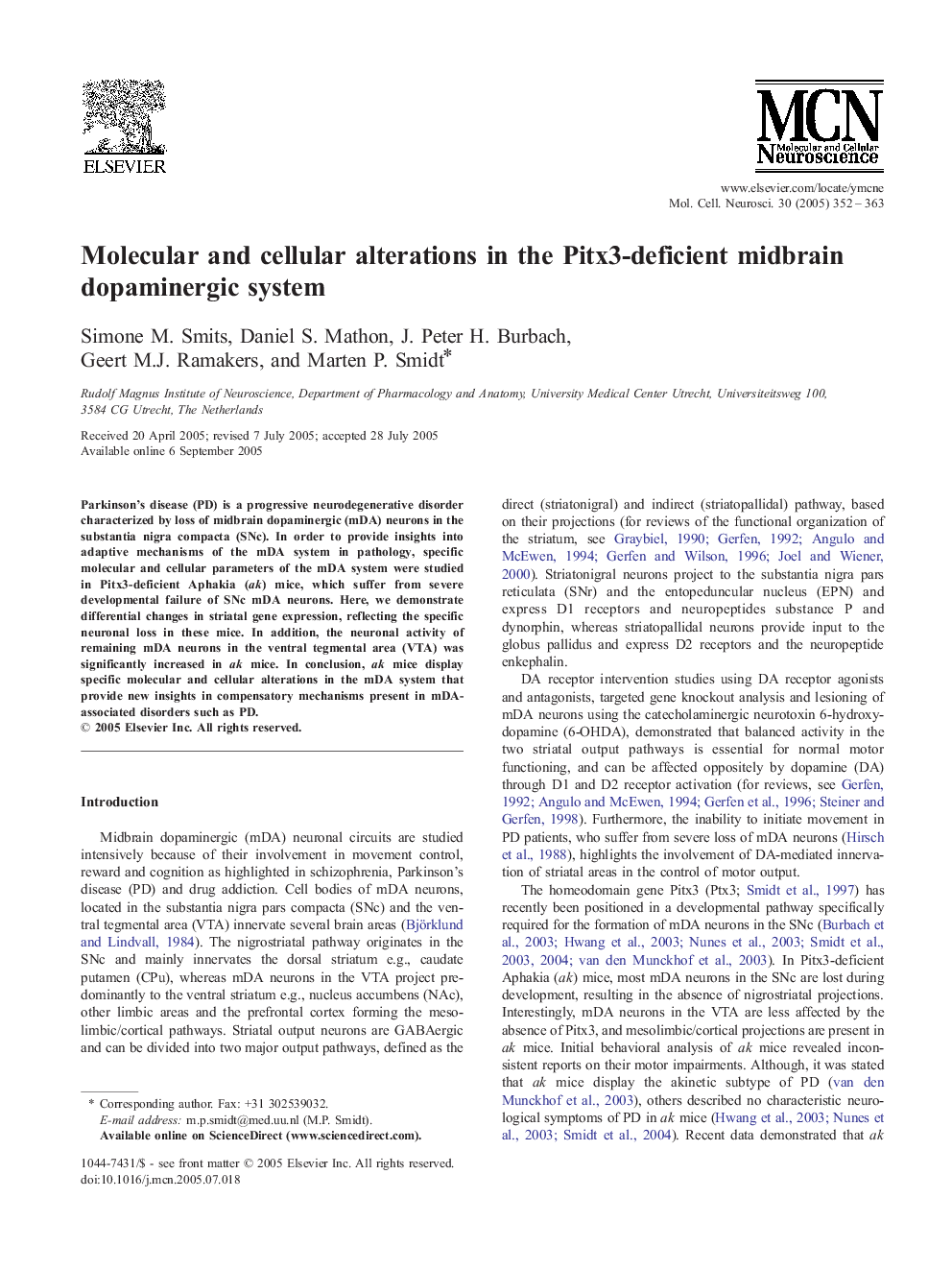| Article ID | Journal | Published Year | Pages | File Type |
|---|---|---|---|---|
| 10956804 | Molecular and Cellular Neuroscience | 2005 | 12 Pages |
Abstract
Parkinson's disease (PD) is a progressive neurodegenerative disorder characterized by loss of midbrain dopaminergic (mDA) neurons in the substantia nigra compacta (SNc). In order to provide insights into adaptive mechanisms of the mDA system in pathology, specific molecular and cellular parameters of the mDA system were studied in Pitx3-deficient Aphakia (ak) mice, which suffer from severe developmental failure of SNc mDA neurons. Here, we demonstrate differential changes in striatal gene expression, reflecting the specific neuronal loss in these mice. In addition, the neuronal activity of remaining mDA neurons in the ventral tegmental area (VTA) was significantly increased in ak mice. In conclusion, ak mice display specific molecular and cellular alterations in the mDA system that provide new insights in compensatory mechanisms present in mDA-associated disorders such as PD.
Related Topics
Life Sciences
Biochemistry, Genetics and Molecular Biology
Cell Biology
Authors
Simone M. Smits, Daniel S. Mathon, J. Peter H. Burbach, Geert M.J. Ramakers, Marten P. Smidt,
